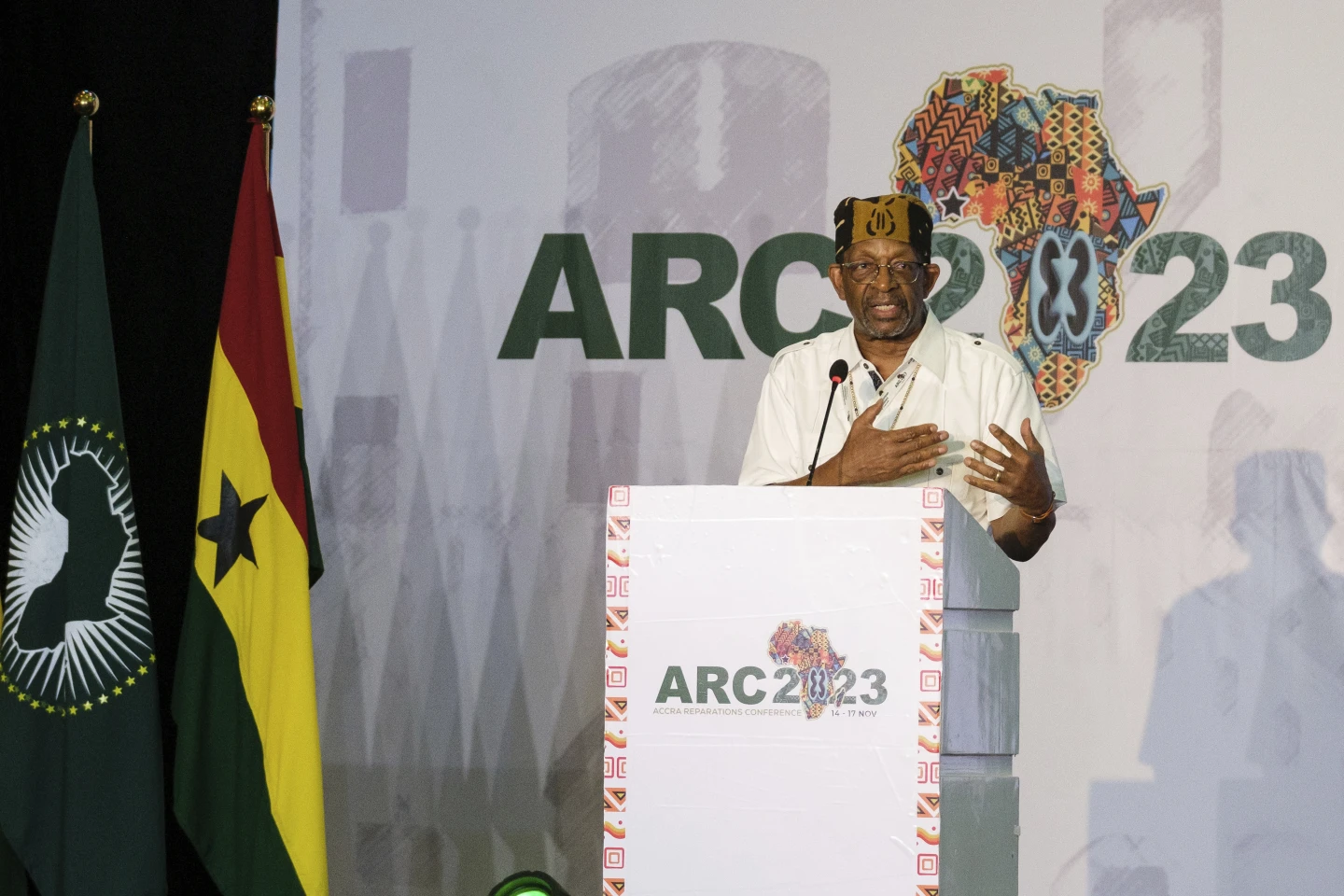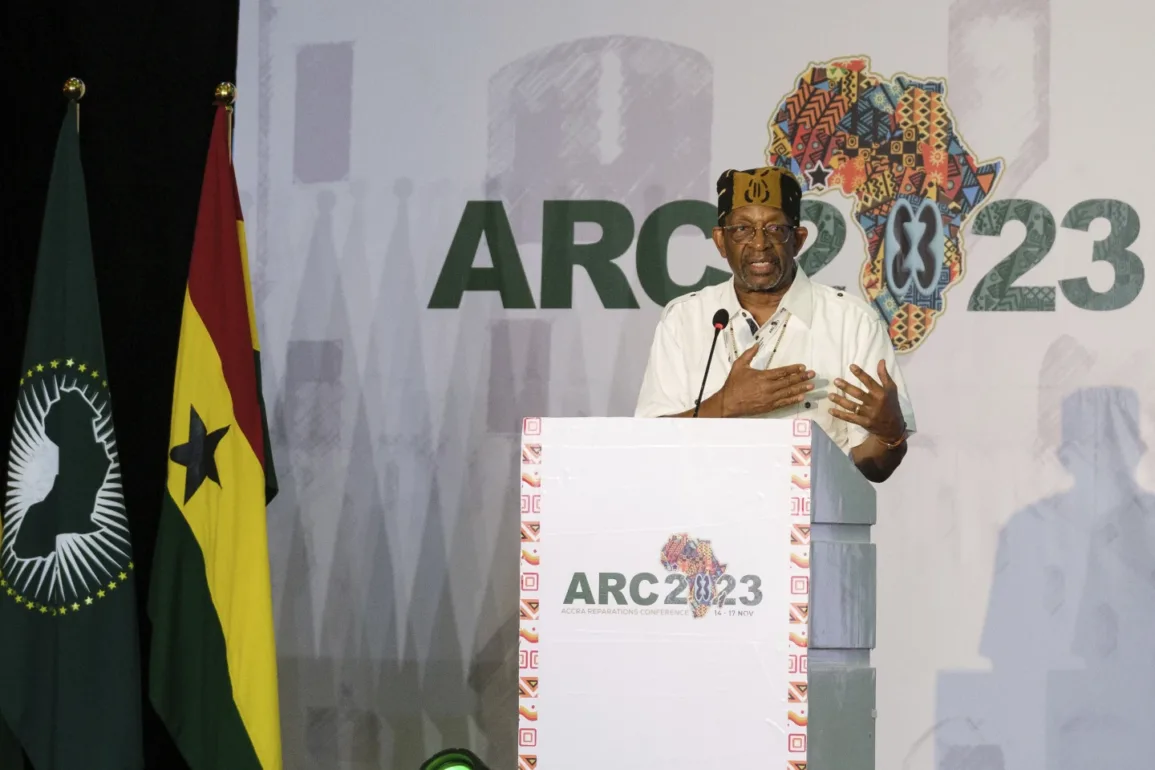
The contemporary global order, currently under immense stress on multiple fronts, remains shaped by the historical impact of Western imperial expansion, which manifested itself through trafficking and enslavement, colonialism, and neo-colonialism.
In the case of Africa, its material, artistic and human resources were pillaged, leaving a legacy of underdevelopment and structural inequality.
As part of the quest for reparatory justice, and seeking to close this particular historical chapter, the African Union and the Government of Ghana convened, in November 2023, the hugely significant Accra Reparations Conference. It gathered together the modern global African reparations movement, including significant participation from the Caribbean Community and Common Market (CARICOM), as well as civil society veterans from the diaspora and Africa.
Addressed, amongst others, by the Comoros President and AU Chair, President Akufo-Addo of Ghana, and Mia Mottley, Prime Minister of Barbados, the conference built on a number of earlier initiatives.
These included 2022’s inaugural Global Conference on Reparations and Racial Healing, held in Accra; the 2001 Durban Declaration and Program of Action, which had acknowledged the kidnapping, trafficking and enslavement of Africans that constituted the so-called ‘slave trade’, as a crime against humanity; and the 1993 Abuja Proclamation, which 30 years ago, on the eve of the final liberation of South Africa and the end of the continental decolonisation struggle, actually kick-started the modern discourse surrounding formal reparations for historical injustices such as slavery and colonialism.
For me as an invited speaker, it was a heady experience to be amongst a diverse group of participants, including policymakers, lawyers, activists, researchers, diplomats, and journalists from Africa and the African diaspora.
The event involved a global stocktake of current campaigns and achievements, and strategising on ways of linking disparate actions for maximum impact, while discussing new perspectives on reparatory justice for people of African descent.
The conference tapped into the growing momentum around reparations along a number of multi-vectored fronts – the return of cultural museums artefacts; the apologies and token reparations respectively from the Prime Minister and King of the Netherlands and Heirs of Slavery, whose ancestors profited from slavery; the £100m commitment by the Church of England and £20m by Glasgow University; and the State Commissions in New York and California to review the case for reparations, etc.
Chaotic proliferation of responses
But it also noted that the proliferating responses from different individuals, institutions, businesses and governments were themselves chaotic and frequently arbitrary.
Important questions remain unanswered – on what basis did the Church of England, for instance, reach its £100m figure when CARICOM estimates a figure of trillions is owed just in the Caribbean? Who should receive it and how?
The conference was seen as an important intervention in the process of bringing clarity and focus to these questions, while coordinating positions that will reduce the number of confusing freelance divide-and-rule tactics.
It recalled a similar historical moment, when again with Ghana in the lead, President Kwame Nkrumah called the 1958 All Africa Peoples’ Conference, gathering leaders from across Africa, with diaspora participation in the shape of George Padmore and Franz Fanon, to begin the process of decolonising the continent through liberation struggles.
The decisions made at that ’58 conference were later adopted in 1963 by the Organisation of African Unity, which established a self-financed Liberation Committee for the coordination of strategy, and 25 May as African Liberation Day for the mobilisation of ordinary Africans.
With the end of Apartheid in 1994, the continent was largely decolonised, proving that with unity, victory follows. Now a similarly united structure and laser focus is unfolding in the struggle for reparatory justice.
The outcomes of the 2023 Reparations Conference will not only establish an African Committee of Experts, from the continent and the diaspora, on Reparations for the purpose of developing a Common African position to implement the Action Plan of the 2022 Accra Reparations Conference, but also a Reparations Fund to finance its work.


